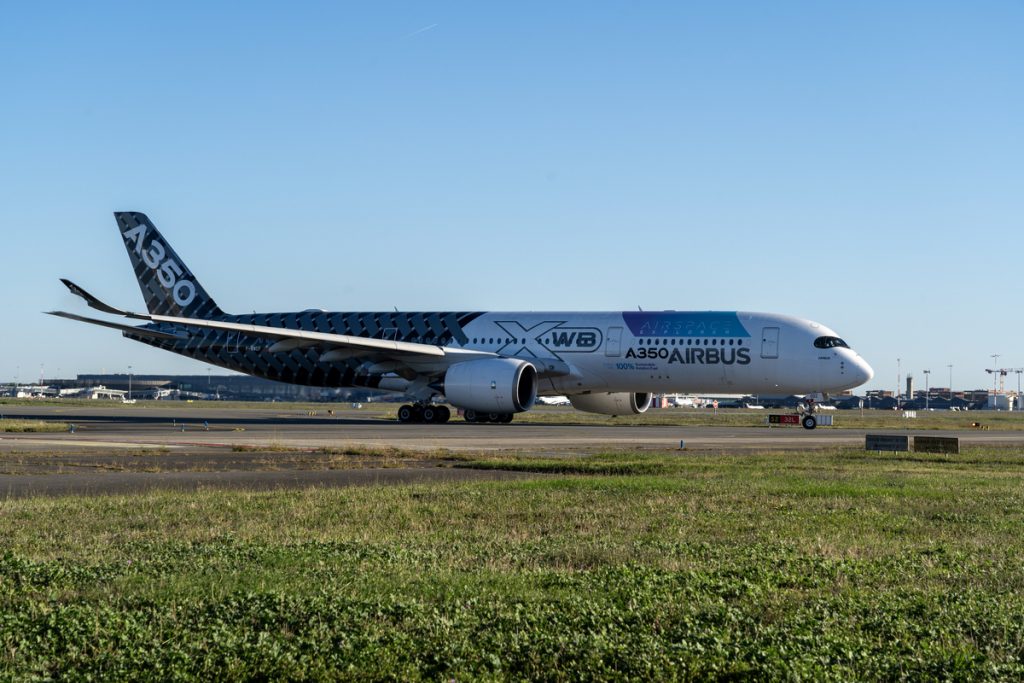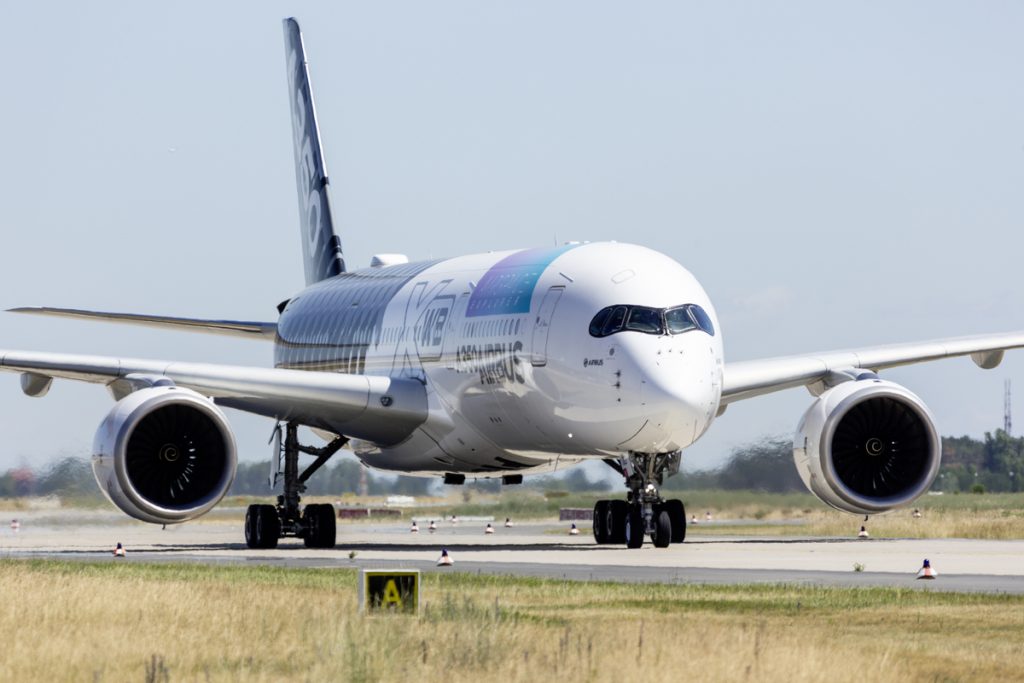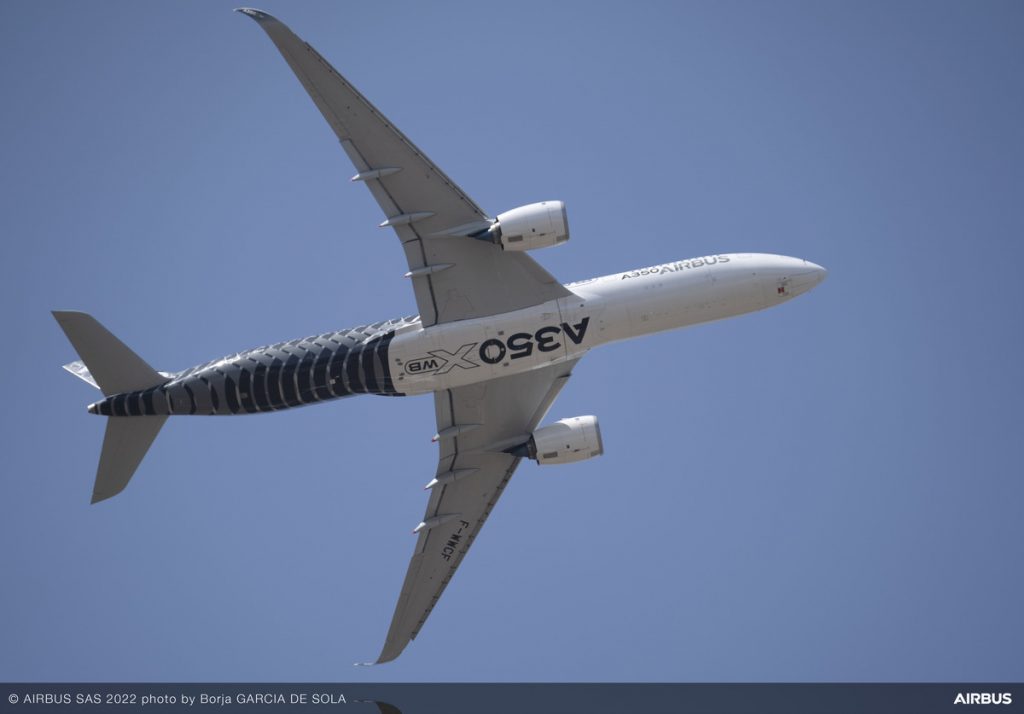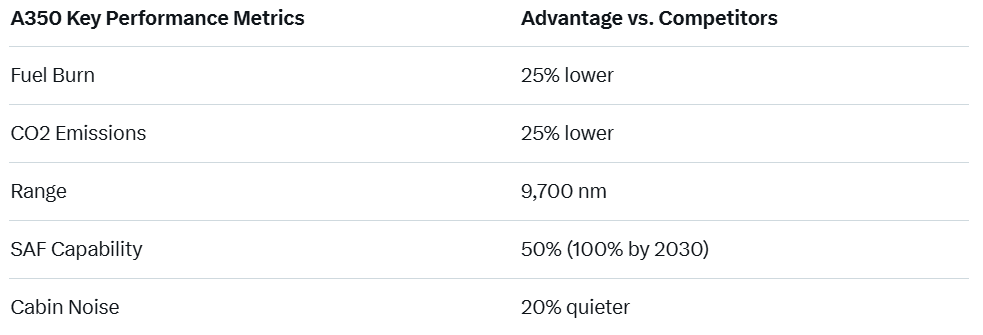India’s major low-cost carrier IndiGo has marked a pivotal milestone in its long-haul fleet expansion. The airline has successfully converted a Memorandum of Understanding (MoU) signed in June 2025. This sees a firm order for 30 Airbus A350-900 widebody aircraft.
This decisive action elevates IndiGo’s total A350 commitments to 60 units, underscoring a profound shift toward long-haul international operations.
By harnessing the A350’s exceptional range—up to 9,700 nautical miles—and superior fuel efficiency, IndiGo is positioning itself to fulfill its vision of becoming a dominant force in global aviation by 2030.
A Strategic Imperative for Global Connectivity
Pieter Elbers, Chief Executive Officer of IndiGo, explained the significance of this development during the announcement. “Today represents a landmark occasion for IndiGo as we formalize our dedication to broadening our international network. We’re delivering unmatched connectivity to our valued passengers,” Elbers stated.
The conversion of this MoU into a binding commitment for 30 additional A350-900 aircraft signals the airline’s confidence in the trajectory of Indian aviation. It builds directly on the robust performance of IndiGo’s nascent long-haul services, which commenced earlier this year.

Elbers aligned this initiative with India’s national aspiration to emerge as a premier global aviation hub. “In alignment with this vision and our goal to establish IndiGo as a leading international carrier by 2030, we are executing bold, forward-thinking strategies,” he emphasized.
These aircraft will progressively integrate into the fleet over the coming years. They will serve as the cornerstone for IndiGo’s expanded global reach.
The airline anticipates inaugurating direct routes to key markets in Europe, North America, and the Asia-Pacific region. This unlocks unprecedented travel opportunities for Indian passengers and fostering economic ties worldwide.
Airbus Leadership Comments
Benoît de Saint-Exupéry, Executive Vice President of Sales for Airbus Commercial Aircraft, expressed his support for the partnership. “The Airbus A350’s benchmark-setting fuel efficiency, extended range, and superior passenger comfort are impeccably tailored to IndiGo’s aggressive growth trajectory and its aspirations for a comprehensive long-haul network,” de Saint-Exupéry remarked.
This order reinforces Airbus‘ longstanding collaboration with one of the world’s most dynamically expanding airlines. It also positions the European manufacturer to actively support IndiGo’s penetration into premium long-haul markets.
“We are committed to supporting IndiGo’s transformative journey,” he affirmed, highlighting the mutual benefits of this deepened alliance.

India’s Aviation Surge: The A350’s Strategic Fit
As the world’s fastest-growing aviation market, India is experiencing exponential demand for international connectivity.
A robust GDP growth averaging 7% annually propels this surge, with a burgeoning middle class exceeding 400 million individuals. Rising disposable incomes have doubled per capita over the past decade. The International Air Transport Association (IATA) projects passenger traffic from India will increase by 15% year-over-year through 2030, according to the International Air Transport Association (IATA).
The A350 is ideally suited to meet these demands. It offers operators the flexibility to serve high-demand routes such as Delhi to New York or Mumbai to London nonstop.
Airbus has nurtured a symbiotic relationship with India’s civil aviation sector for over five decades, delivering products and services that have catalyzed its meteoric rise.
The A320neo Family, with over 1,000 units in IndiGo’s fleet alone, has democratized air travel, reducing domestic fares by 40% since 2015 and serving 200+ destinations.
Complementing this, the A350 emerges as the definitive platform for Indian carriers to capture the lucrative international segment, where margins can exceed 20% on efficient widebody operations.

Technical Superiority of the A350
In the 300-410 seat category, the Airbus A350 stands as the most technologically advanced widebody aircraft currently in service. Its design integrates revolutionary aerodynamics, including composite wings comprising 70% carbon fiber, with next-generation Rolls-Royce Trent XWB engines.
This synergy yields 25% reductions in fuel consumption, operating costs, and CO2 emissions relative to preceding-generation competitors like the Boeing 777-200ER.
Passengers benefit from a 20% quieter cabin, enhanced humidity levels (up to 20%), and LED lighting that mitigates jet lag, which is critical for 14+ hour flights.
Environmentally, the A350 is certified for up to 50% Sustainable Aviation Fuel (SAF) blends today, with Airbus targeting full 100% SAF compatibility across its portfolio by 2030. This aligns seamlessly with India’s net-zero aviation goals by 2070 and global ICAO standards.

By the close of September 2025, the A350 family had amassed more than 1,400 firm orders from 63 customers across six continents.
Notable operators include Singapore Airlines, Qatar Airways, and Delta Air Lines, affirming its status as the preferred choice for efficient, long-range operations. IndiGo’s order elevates it to one of the program’s top 10 customers.
Conclusion
By 2030, IndiGo projects a fleet exceeding 1,000 aircraft, with widebodies comprising 20% to support 100+ international destinations. Stakeholders, from passengers enjoying seamless connectivity to investors benefiting from projected 15% CAGR in revenues, stand to gain substantially.
India’s aviation narrative is one of unparalleled ambition and execution. With IndiGo moving proactively, the nation is poised to further consolidate its long-haul travel footprint.

